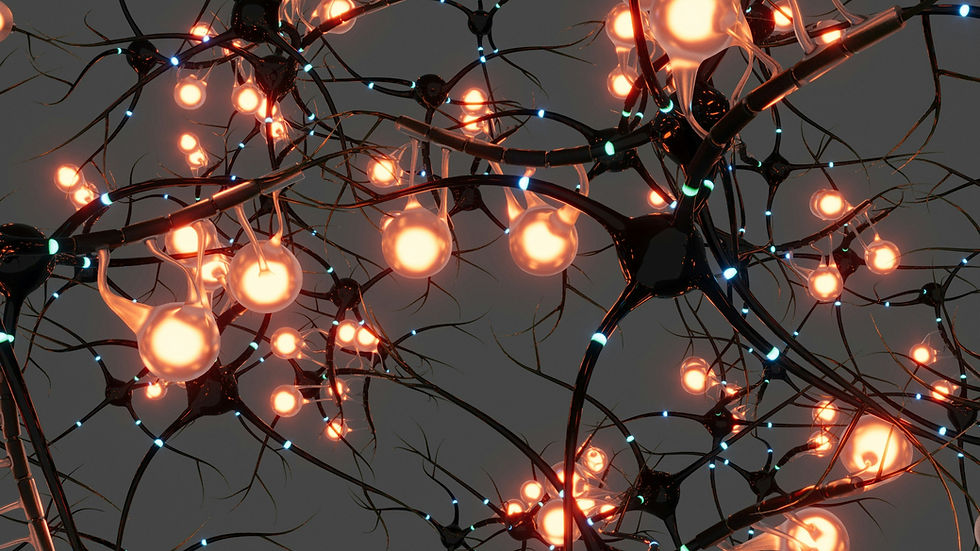Loving Mirror-Gazing: A Powerful Practice for Emotional Healing
- Sonia Scussel
- Oct 14, 2024
- 3 min read
Updated: Dec 6, 2024

Thoughts flow through our minds unnoticed, and in moments of self-talk, we often default to self-criticism, unaware of how deeply it shapes our self-perception.
"Loving mirror-gazing" appears to be a very simple exercise, but it is quite challenging for most. This exercise, rooted in modern psychology and ancient mindfulness traditions, suggests that by looking at ourselves intentionally in the mirror using love and kindness, the brain initiates a process leading to profound emotional benefits.
The Science of Self-Compassion
Central to this practice is self-compassion. Research by Dr Kristin Neff highlights how treating ourselves with the same careful attention we offer others reduces anxiety, improves emotional balance, and enhances resilience.
Similarly, the loving mirror-gazing rewires the brain's responses by shifting from self-criticism to self-kindness. Neff explains that self-compassion involves recognising our struggles as part of the common shared human experience rather than something unique.
Engaging in mirror-gazing with love and empathy activates neural pathways that support emotional resilience and self-compassion; the brain begins associating the reflection with empathy, which can have lasting psychological benefits.

What lies behind us and what lies before us are tiny matters
compared to what lies within us.
Ralph Waldo Emerson
Mirror Neurons: Promote Inner Connection
Loving mirror-gazing works thanks to mirror neurons, which are brain cells activating when we observe someone else's actions and when we perform the same actions. These neurons play a significant role in social bonding and empathy.
When we direct our loving gaze inward, the brain mirrors those compassionate emotions, helping create a loop of self-empathy.
The Role of Gaze in Infant Brain Development
The positive effect of eye-gazing begins in infancy. Babies depend on the loving gaze of a caregiver to form critical neural pathways in their developing brains. The connections built through eye-gazing are essential for the baby to learn how to self-soothe, cope with emotions, and form healthy relationships. With the warm and nurturing caregiver's gaze, the baby develops emotional regulation skills and learns to calm down in distressing situations.
Neuroscientist Dr Allan Schore underlines how consistent, loving eye contact during infancy strengthens the brain's emotional regulation system. Without this loving attention, the brain would struggle to develop the necessary connections for healthy emotional responses.

The most powerful relationship you will ever have is the relationship with yourself.
Steve Maraboli
Activating the Body's Relaxation Response
The main benefit of loving mirror-gazing is reducing stress. By engaging in self-compassionate practices and intentionally experiencing loving-kindness, the brain signals to the body that it is safe. This activates the parasympathetic nervous system, which controls relaxation, recovery, and emotional calm.
Research by Paul Gilbert, founder of Compassion-Focused Therapy (CFT), shows that self-compassion engages the body's soothing system, regulating emotions and reducing anxiety. It also shifts the body's stress response and fosters a sense of well-being.
Rewiring the Brain Through Neuroplasticity
The brain's ability to change, known as neuroplasticity, allows it to form new neural pathways based on thoughts and experiences. Neuropsychologist Rick Hanson explains that focusing on positive aspects of emotional experiences can reshape the brain to enhance happiness and emotional resilience.
When you engage in mirror-gazing with compassion, you create positive emotional experiences that can rewire your brain. Over time, this practice helps strengthen pathways associated with empathy and self-kindness.

You, yourself, as much as anybody in the entire universe,
deserve your love and affection.
Buddha
Enhancing Emotional Intelligence and Self-Awareness
Loving mirror-gazing also supports emotional intelligence. When gazing into your eyes, you meet your authentic self, with the positive and the negative. Over time, regular practice encourages acceptance of every feeling without judgment, enhancing emotional regulation, self-compassion, and increased empathy.
This increased self-awareness helps you improve your relationships, fostering greater empathy and emotional understanding.
Healing Emotional Wounds
Loving mirror-gazing can also be a powerful tool for healing emotional wounds. Psychologist and meditation teacher Tara Brach highlights the importance of self-acceptance in overcoming feelings of inadequacy. In her book Radical Acceptance, Brach explores how mindfulness practices, such as the loving mirror-gazing exercise, can help individuals start a self-validation process and mitigate the struggle with low self-esteem or harsh self-criticism.

With practice, you’ll learn to embrace your imperfections
and to accept yourself exactly as you are.
Tara Brach
Final Thoughts
Loving mirror-gazing is more than just a self-care practice; it is a valuable and easy exercise for emotional healing. Initially, the practice may feel awkward and distant. Still, with consistency, your intention becomes more genuine, and over time, your inner narrative will reflect kindness, acceptance, and love.
When unpleasant feelings sit for too long, it's time to reach out. Remember that you don't have to face everything alone; find someone you can trust to talk to. A helpline, a support group, your GP or a counsellor can offer support.
Subscribe to this website and get 15 minutes of free online consultations.
